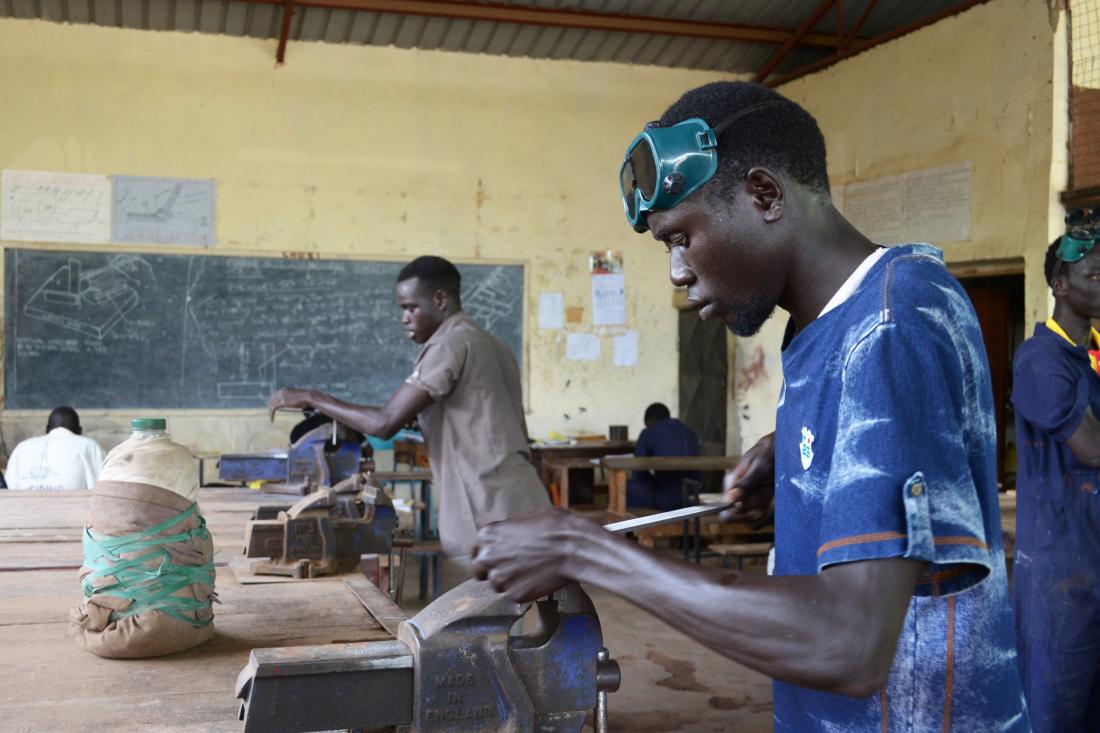Soft Skills Training on Enterprise and Employment Growth in Tanzania
- Job seekers
- Youth
- Earnings and income
- Soft skills
Youth unemployment is a growing concern in many low- and middle-income countries around the world, including in Tanzania. While there is a well-documented need for skills training programs, there is little consensus on how to improve their quality and limited evidence on the impact of soft-skills training on employment. In this study, researchers explored the impact of a soft-skills training program on youth employment.
Problema de política pública
Youth unemployment is a growing concern in many low- and middle-income countries around the world. This is in part driven by limited access to and inadequate quality of post-primary education, including vocational training. Millions of young people are either unemployed or work in unsafe occupations due to a growing youth labor force and the need for new skills brought on by technological advancement. To address this issue, governments and international organizations are pushing for self-employment through micro- and small-enterprises as an income source for owners as well as its ability to generate employment opportunities for others. However, many young people do not have the skills or interest to become entrepreneurs. While there is a well-documented need for skills training programs, there is little consensus on how to improve their quality and reach, particularly for marginalized groups. Furthermore, while traditional training programs often focus on developing technical competencies, there is even less evidence on the impact of soft-skills training on employment. In this study, researchers explored the impact of a soft-skills training program on employment.
Contexto de la evaluación
Tanzania, like many countries in sub-Saharan Africa, has a high youth unemployment rate. In this context, TechnoServe implemented STRYDE 2.0, a program that addresses youth unemployment by providing soft-skills training to young people and then linking them to possible employers or supporting them to develop their own businesses. Between 2015 and 2019, the STRYDE 2.0 program targeted 48,000 young people in Kenya, Rwanda, Uganda, and Tanzania.
Trainers taught the course in two half-day sessions per week over a 12-week period for a total of 96 hours of training. There were approximately 35 students in each class. There were two main components to the program. In the first training component, students engaged in self-awareness exercises aimed at building self-confidence and skills like decision-making, communication, and time management. The teaching style relied on participatory, student-centered approaches, discussions, and group exercises. Subsequently, in the second component, students developed concrete business plans which were entered into a Business Plan Competition. Following this competition, the three best plans were offered a micro-grant. The goal of the program was to help participants discover their strengths, develop professional skills, manage finances, and ultimately, start their own enterprises.
The program also had a gender focus: trainers were 50 percent women, women participants could attend class with babies and children, and the content of the training challenged gender stereotypes. Women found most training components to be useful, including both the time management and confidence-building sessions.

Detalles de la intervención
Researchers conducted a randomized evaluation to test the impact of the STRYDE 2.0 business and soft-skills training program on economic and social outcomes for participating youth. From a total sample of 4,537 youth in 135 villages, researchers randomly assigned them to one of three groups:
- STRYDE training (72 villages): Villages assigned to this group received the STRYDE 2.0 training only.
- STRYDE training + business capital (88 villages): Villages in this group received the STRYDE 2.0 training and could compete for business plan funds. The top three plans per group were offered micro-grants amounting to US$65 each. Among the remaining 80% of top performers per group, five participants were randomly selected to also receive US$65 each.
- Comparison group (63 villages): Villages in this group received neither the STRYDE 2.0 program nor the business plan competition.
All program participants were initially surveyed in Spring 2017, prior to the training commencing in July of the same year. The final data collection occurred in 2018. Researchers sought to measure the impact of the training in addition to the impact of receiving capital to buy the materials and tools to run a small business. In particular, researchers collected participant data on income, assets, savings, confidence and ability to make decisions, enhanced career and entrepreneurial skills, and increased awareness of jobs and business opportunities.
Resultados y lecciones de la política pública
Research ongoing; results forthcoming.
